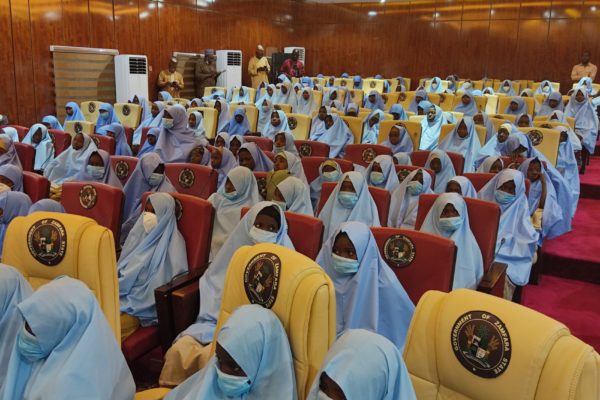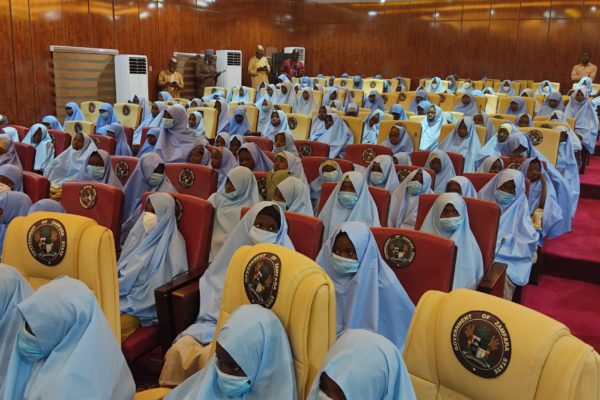Hundreds of Nigerian Schoolgirls Released After Spending Days In Captivity Following Mass Abduction
Hundreds of Nigerian schoolgirls who were abducted at gunpoint last week from a state-run boarding school have been safely released from their captors.
The girls were kidnapped Friday, Feb. 26, when armed men raided the Government Girls Junior Secondary School in Jangebe town in Nigeria’s northwest Zamfara State. Gunmen also reportedly attacked a nearby military camp during the raid so that soldiers would be unable to respond to the situation.

According to witnesses, the gunmen arrived at the school at around 1 a.m. on Friday disguised as security personnel and wearing uniforms. The men took the girls from their beds and “forcefully evacuated” them from their hostels.
“We were sleeping at night when suddenly we started hearing gunshots,” one girl told The Associated Press. “They were shooting endlessly. We got out of our beds and people said we should run, that they are thieves.” An official ended the interview before the girl could provide her name.
The kidnapping incident was the latest in a string of recent mass student-abductions in the country.
All 279 kidnapped girls were freed, and arrived at state Government House office in Gusau on Tuesday. The group of barefoot girls ranged from in age from 10 and up, and were dressed in pastel-colored hijabs.
“Most of us got injured on our feet and we could not continue trekking, so they (their captors) said they will shoot anybody who did not continue to walk,” Umma Abubakar told reporters at the state house. “We walked across a river and they hid us and let us sleep under shrubs in a forest.”
Yusuf Idris, a spokesman for the regional governor Bello Matawalle, said the girls were in “good condition.” Some had open sores on their feet and were provided medical treatment. The number of kidnapped girls was originally said to be 317 but the number was changed to 279 without explanation.
“Alhamdulillah! (God be praised!) It gladdens my heart to announce the release of the abducted students of GGSS Jangebe from captivity. This follows the scaling of several hurdles laid against our efforts. I enjoin all well-meaning Nigerians to rejoice with us as our daughters are now safe,” Matawalle said on Twitter Tuesday.
Police and the military had been cooperating to rescue the girls since the Friday raid.
Following the meeting at the state Government House, the girls were escorted into vans by officials and taken away.
Repeated mass kidnappings have plagued Nigeria in recent years. On Feb. 17, 42 students, staff members and relatives were kidnapped from the Government Science College Kagara in Niger state. They were released Saturday.
In December, more than 300 boys from a school in Kankara were abducted and later released.
Kidnapping for ransom is common in Nigeria, and officials often pay money to ensure victims’ safe return but are unlikely to admit to doing so.
Nigerian President Muhammadu Buhari has warned that “rewarding bandits with money and cars” could potentially backfire and warned state governors to review their policies.
Ernest Ereke, of the University of Abuja, also warned that paying ransoms could embolden criminals. “It is a lucrative venture in a country where a lot of young people are impoverished, jobless and hungry,” he said.
“The state, which should confront these criminals, is enabling them by always pandering to their dictates. It should be the other way round, that is, the criminals should be scared of the state, but, in this case, it is the state that is scared of criminals.”
Idris denied that a ransom was paid for the safe return of the girls, telling CNN, “They said the kidnappers treated them fairly. They were provided food but they didn’t have a place to sleep, no bed or mattress and they had to walk barefoot. They said it was their worst experience in life,” he added.
Officials have not said who is responsible for the kidnapping ad it is not clear if the captors have been arrested.

